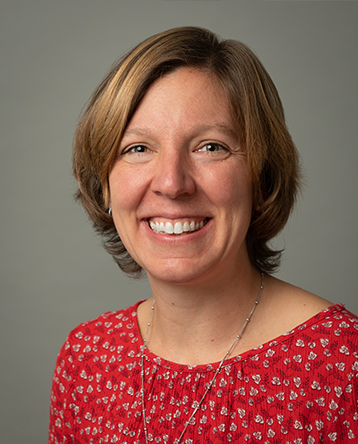Rosalyn Abbott
Associate Professor, Biomedical Engineering
Courtesy Appointment, Materials Science and Engineering
Associate Professor, Biomedical Engineering
Courtesy Appointment, Materials Science and Engineering

Rosalyn Abbott is an associate professor in the Department of Biomedical Engineering at Carnegie Mellon University. In Abbott’s lab, human adipose microenvironments are being developed and tested for responsiveness to stimuli hypothesized to alter disease mechanisms (i.e. the transition of obese tissues to insulin resistant type II diabetic tissues), metabolic behavior, and therapeutic potential. The lab focuses on integrating systems-based modeling with tissue engineering, perfusion bioreactors, and mechanical studies. Specifically, silk is used as a natural biomaterial to support long term culture of adipose micro-environments in vitro. The ultimate goal is to use these adipose tissue systems to inform preventative and therapeutic measures for patients affected by the metabolic syndrome.
Abbott received her Ph.D. from the University of Vermont, and completed her postdoctoral fellowship at Tufts University.
2012 Ph.D., Bioengineering, University of Vermont
2008 MS, Biomedical Engineering, Rensselaer Polytechnic Institute
2008 BS, Biomedical Engineering, Rensselaer Polytechnic Institute
CMU Engineering
Five students who participated in the Summer Undergraduate Research Fellowship (SURF) program enriched their studies by conducting research related to the biomedical applications of their respective engineering fields.
Columbia Climate School
BME’s Rosalyn Abbott was recently interviewed on Columbia Climate School's podcast, Food Pod for Humanity, Season 2 Episode 5, discussing the science of cellular agriculture alongside David Kaplan (Tufts University).
Technology Networks
BME’s Rosalyn Abbott was featured on Technology Networks’ “Teach Me in 10” describing her lab’s use of 3D printing and cellular engineering to enhance fat content and structure in cultivated meat, aiming to make these products more affordable, sustainable, and scalable.
MechE’s Jon Cagan and Chris McComb, BME’s Keith Cook and Rosalyn Abbott, and BME/MSE’s Adam Feinberg are leading sessions at SXSW 2025 that will focus on the application of AI in education and organ transplant technology.
CMU Engineering
A CMU-led project team secured an award of up to $42M from ARPA-H to accelerate the development of implantable bioelectronic devices that deliver patient-specific therapy and monitor disease status.
Eating Well
As interest rises in meat alternatives, BME's Rosalyn Abbott was tapped to discuss the safety, sustainability, and innate challenges associated with the trend.
Healthcare Degree
BME’s Rosalyn Abbott was consulted as a subject matter expert for Healthcare Degree's spotlight on careers in biomedical engineering.
Lab Manager
In an extensive Q-and-A piece, BME’s Rosalyn Abbott recently discussed the current landscape of biomaterials research and how it is opening new horizons for personalized and more effective healthcare solutions.
CMU Engineering
Engineering undergraduate students had a wonderful showing at Meeting of the Minds, displaying posters, giving presentations, and demonstrating projects they have worked on this past academic year.
Tech Times
BME’s Rosalyn Abbott weighs in on the potential for personalized 3D-printed food products in Tech Times.
CMU Engineering
Using cellular agriculture, the Abbott lab is working on a sustainable meat alternative that is safe and tastes good, without needing to sacrifice any animals.
CMU Engineering
CMU College of Engineering’s Krause and Abbott receive NSF CAREER Awards for their research in materials science and biomedical engineering.